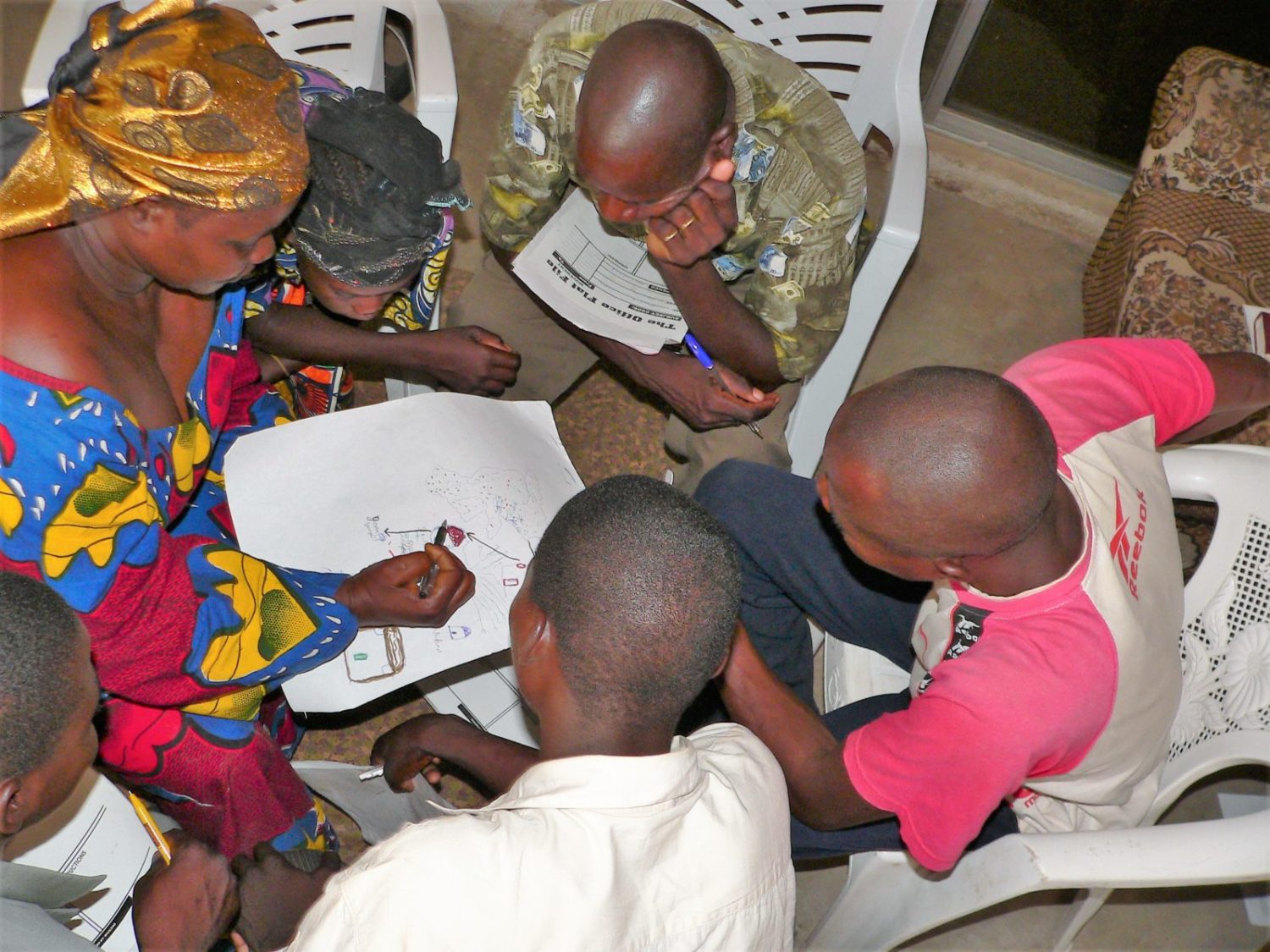Are those who promote a DMM strategy for disciple-making and church planting opposed to preaching? Is it ever appropriate to preach to those you disciple? When is it not helpful to preach? These questions have come up in conversations with those I’ve trained recently. They are important questions to ask.
The Apostle Paul said in Romans 15:20 that he had endeavored to preach the gospel where Christ was not known. There are many biblical references to preaching. In DMMs, there is a place for it. It is important, however, that we understand what that word means in Greek. We should not automatically think it refers to what happens on Sunday mornings from a platform.
In this article, we will look at what that word means in its context. We will discuss the times when preaching (or proclamation) is helpful or necessary. It’s also important to look at when it could cause barriers to reproducibility or adult learning. We will also consider the power of story-telling and see in Scripture that this was Jesus’ primary method of communicating truth.
Don’t Preach!
“Don’t preach!” I said to the African brother I was training. We were doing a Discovery Bible Study practice time during a DMM workshop in Kenya. My wonderful brother, a pastor, had slipped into “preaching mode” in the group. He was doing what he was in the habit of doing with those he pastored. For more than five minutes, he explained the scripture passage to them; what it meant, and what the main points were. As he did this, his voice rose and fell in the typical Kenyan preacher style. I could tell it was hard for him not to stand up and wave his hands around.
After some discussion, I was able to help him see that I too am a preacher who loves to preach. Our goal, however, is to help the group learn from Scripture themselves. We want to allow the Holy Spirit to speak to them what are the main points rather than telling them what we think they are. “Justin,” I said, “you have good ideas and points to bring out. But we want to give room for God to speak to us through the Holy Spirit in everyone, not only in you or me.” Later, when I had more time, I pulled him aside to explain further.
“When people practice stories and repeat them out loud, then discuss them, they are much more likely to remember the things they discovered. And they are more able to pass those on to others than when they are passive listeners hearing us preach.”
It was the goal of multiplication that made it so important. I then asked my pastor friend to examine Jesus’ way of training disciples. Did he give them all the answers? No. Many times, He asked them questions and made them think for themselves. Sometimes He did explain things. But many, many times, He responded to questions with questions or another story rather than direct teaching or preaching. We both agreed that we want to learn to be more like Jesus!
“By the power of signs and wonders, through the power of the Spirit of God. So from Jerusalem all the way around to Illyricum, I have fully proclaimed the gospel of Christ. It has always been my ambition to preach the gospel where Christ was not known, so that I would not be building on someone else’s foundation.”
Romans 15:19-20 NIV
4 Considerations About Preaching in DMM Ministries
- The Proclamation (Preaching) of the Good News
The passage above uses the English words proclaim and preach. The Greek words are basically the same- euaggelion and euaggelizo– both referring to announcing or sharing the Good News that Jesus is the Messiah or Savior. It is from these words that we get the word evangelize.
What does it mean to fully proclaim the Good News? What is the best way to do this? Standing on a street corner with a microphone shouting it out to people who walk by? The answer is quite contextual. What works in one location or culture or generation to fully proclaim the Good News may not be what works best in others.
From this passage, however, we see that there is definitely a place for preaching (read evangelizing) the Good News to others. In DMM contexts, what we have found is a best practice is training yourself and others to share a simple five to ten-minute Good News presentation. Some people like to use the 3 circles to do this. Others use Any 3 or a Creation to Christ story. It could be said that sharing these stories with people is “preaching” to them in the sense of Romans 15:19-20. This is very common and encouraged in DMM/CPM training.
It is notable that in the New Testament, the proclamation of the Gospel was often accompanied by signs and wonders. That is another topic for another blog.
- When preaching can hinder multiplication
What we generally try to avoid, in DMM approaches, is doing things in ways that only trained professionals can replicate. We want ordinary Christians, and particularly new believers, to be able to do what we are modeling. So if we demonstrate a 25-minute sermon as our main way to bring people to faith, it’s unlikely they will feel they can do that. Or, if we stand on a street corner, many will feel they lack the boldness to do that – not to mention that in most situations it’s not a very effective way of reaching people.
Always think multiplication. Is what I am doing reproducible? Could a child do it? Could a new believer do this? If not, we need to adjust our proclamation methods and simplify them.
- Using stories and questions to communicate truth
Jesus told many stories to both the crowds and to his disciples. He taught them to pass on these stories to others as well. In the Gospels, we see that Jesus told between 30 to 50 stories (depending on how you count the variations) but only delivered three primary sermons. And, even more often, he demonstrated God’s love and power through signs and wonders.
How did Jesus preach the good news? The main method He used and also taught his followers to use (see Luke 10), was to heal the sick, cast out demons, and then to share about the Kingdom of God. How did he teach about the Kingdom? Through parables and stories.
The Bible certainly doesn’t prohibit the preaching of sermons. Paul, a trained orator, seemed to preach long sermons sometimes (remember Eutychus in Acts 20). There is a place for an apostolic leader to speak like this to those he is training.
However, the primary way we want to train people and model as often as we can is participatory, simple, and story-based.
- The power of discussion and discovery in adult learning
A number of years ago I did a course at Fuller Seminary on adult learning. It was fascinating to understand how adults learn best. It is from participatory and discovery-oriented learning rather than being told all the answers. Their retention and application is much, much higher when they interact with the material.
As those who want to make disciples, we must seriously consider what causes people to learn best.
WE REMEMBER
– Edgar Dale[1]
10% of what we read, 20% of what we hear, 30% of what we see, 50% of what we see and hear, 70% of what we discuss with others, 80% of what we personally experience, 95% or what we teach others
Preach At People Less, Discuss More
Here’s my challenge to you as I close. I’m not saying to stop preaching completely. Many reading this are pastors and that is what is expected on Sunday mornings. Ask yourself. How could you make your preaching time more interactive and more reproducible? And in your smaller group DBS or disciple-making times- Don’t preach!
[1] https://uh.edu/~dsocs3/wisdom/wisdom/we_remember.pdf




Comments
I will preach and teach the word of God as long as i live in this world.
This is powerful, but I really need your assistance how can I make Bible study interactive, I have a group I am discipline but I have been teaching and preaching to them. Please help me.
Author
Denis, we would love to help. Please continue reading these blogs and use our search bar to read older articles as well. Or, even better enroll in our Getting Started in Disciple Making Movements course. To do that go to http://www.courses.dmmsfrontiermissions.com
A preacher in Africa and I wish to learn all these
I am pastor Gilbert, i was called for discople making and life transformation. I am the founder and legal represantative at Rwanda christian mercy’s mission. I just want to collabrate with you throught this amazing mission
I honour you for your commitment in equiping disciples for the work of discipling the world.Thank you saints.